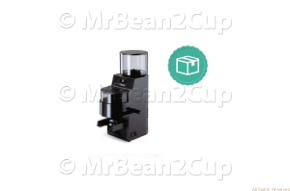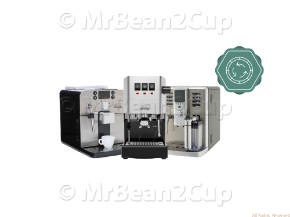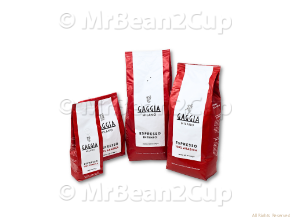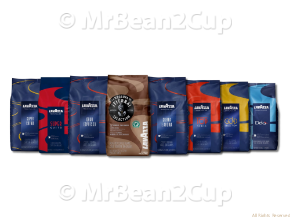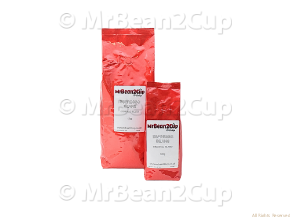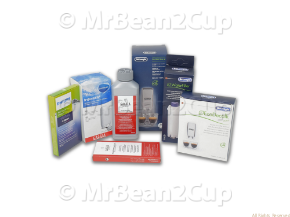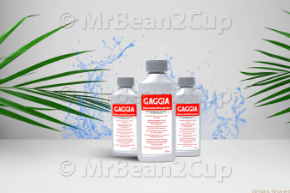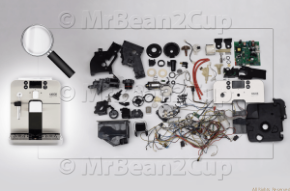Alternatives to Sugar in your Coffee
Using sugar alternatives in coffee has become very popular in recent years, for a number of reasons.
Some people are concerned about the health issues associated with over consumption of sugar, while others are just looking for a different additive that enhances the flavour of their coffee.
Whatever your reason, it can be interesting to test some of the sugar alternatives coffee to see how they taste — you might find a new and exciting way to sweeten your coffee. Here are some of the most common alternatives to sugar that work well in coffee.
The Problem With Sugar
Sugar is fine in small doses, but consuming large quantities on a daily basis can contribute to a wide variety of illnesses including obesity, diabetes, dementia, macular degeneration, cardiovascular disease, chronic kidney disease, renal failure, and high blood pressure.
Given that sugar is so prevalent in the foods we eat, many people have decided to avoid eating sugar when possible. For people drinking 2-4 cups of coffee per day, removing sugar from your coffee can make a huge difference to your long-term health. While these sugar alternatives are healthier options, you may have to try a few before finding one that you enjoy.
Common Alternatives to Sugar in Coffee
Many sugar alternatives have a sweet flavour similar to sugar, but contain significantly less food energy. Some popular sugar alternatives are natural substances while others are synthetic substances, made from engineered or refined molecules. Synthetic substances became very popular in the 70s, however, in recent years there is a clear trend for natural substances like stevia. Here are a few of the most popular alternatives to sugar that can work well in coffee.
Artificial Sweeteners*
Most artificial sweeteners used today use saccharin, aspartame, or sucralose. They are all suitable for use in coffee -- with varying levels of success! The most popular artificial sweetener brands are:
· Sweet’N Low® (Saccharin)
This artificial sweetener is primarily made from ground saccharin, dextrose and cream of tartar. Saccharin is between 300-400 times sweeter than sugar, but does not carry any food energy. The main disadvantage of saccharin is a metallic aftertaste, particularly when used in high concentrations.
· Equal® and Nutrasweet® (Aspartame)
Both of these sweeteners are aspartame-based. They also contain substances like dextrose with maltodextrin, and acesulfame potassium to give them a similar appearance and mouthfeel to sugar. These sweeteners are very sweet and should be added in small doses initially. Some people complain that they taste “too artificial” when placed in coffee, but many people enjoy using aspartame-based sweeteners in their coffee.
· Splenda® (Sucralose)
Another super-sweet artificial sweetener that should be added in very low doses initially. It has a more “neutral” flavour compared to other artificial sweeteners and does not have the metallic taste of saccharin. Many people complain that it “tastes weird” in coffee, however some people find it to be the most acceptable of the artificial sweeteners.
Sweetleaf® and Truvia®
Stevia is a natural sweetener that is extracted from the leaves of the plant Stevia rebaudiana. The active compounds in stevia can have up to 150 times the sweetness of sugar, with no calories.
Raw stevia can be used in a cup of coffee, however it can clump and cause the texture of the drink to change. For this reason, most people opt for processed forms of stevia found in products like Sweetleaf® and Truvia®.
Some people detest the flavour of stevia-based sweeteners, while others find it the most natural-tasting sugar alternative. Stevia isn’t as outrageously sweet as artificial sweeteners, which makes it a favourite of many people.
Xylitol
Xylitol is a natural sweetener that is a form of sugar alcohol (alditol). It is found in low concentrations in many fruits and vegetables. Commercial products usually extract a molecule called xylan from hardwoods or corn, then alter that substance to form xylitol.
Unlike artificial sweeteners and stevia, xylitol contains calories — 33% fewer calories per unit weight compared to sugar. However, it doesn’t have the same negative impact on your teeth that sugar does and doesn’t raise blood sugar levels rapidly like sugar. It has a flavour similar to natural sugar, but over consumption can lead to diarrhoea in humans. This product is toxic to some animals, so be careful with storage!
Honey
While honey contains a similar amount of calories to sugar, it has a number of advantages:
- It does not cause the rapid spike in blood sugar that sugar does and does not increase your appetite like sugar can
- It contains valuable nutrients and trace elements including vitamin A, vitamin C, various B vitamins, magnesium, phosphate, calcium, potassium, iron, sulfur, copper, iodine and zinc.
- It is an anti-oxidant and anti-bacterial agent
- It can combat certain ailments like stomach ulcers and indigestion
Honey will colour the flavour your coffee, so it’s not for everyone. It can sometimes go better with flavoured coffees including almond and vanilla-flavoured coffees.
Maple Syrup
Similar to honey, maple syrup contains about the same amount of calories as sugar. However, it is rich in anti-oxidants called phenolics, which are believed to have numerous health benefits. The distinct maple flavour isn’t for everyone, but many people grow accustomed to its taste in coffee over time.
Monk Fruit
This is a relatively new form of natural sweetener that is just coming onto the market in Western countries. Monk fruit is a low-calorie vine ripening fruit found in Asia. New products use components of monk fruit combined with dextrose to create a very sweet natural sweetener. You’ll have to try this one for yourself, because opinions on it vary wildly. Some people suggest it tastes like an artificial sweetener, while others say it is very close to sugar in terms of taste.
Chocolate
Yes — we know most types of chocolate contain a lot of sugar! However, if you aren’t too fussed about the health concerns surrounding sugar, chocolate can provide some interesting flavours for your cup of coffee. Simply toss a piece of chocolate into the bottom of your coffee cup and give time to melt. The buttery-cocoa sweetness can be delicious in a cup of coffee. Try dark chocolate or chocolate squares filled with salted caramel, peppermint, almond paste or vanilla.
Spices
Spices can add very interesting flavours and aromas to a cup of coffee. Some spices also provide some great health benefits. Start with:
Cinnamo
A spice that is very sweet and bitter at the same time, cinnamon can help accentuate other flavours in your coffee. Health benefits include improving cholesterol levels and providing both Iron and Vitamin K.
Nutme
Nutmeg is a nutty spice with a slightly sweet flavour. It is a great source of manganese.
Cocoa Powder Commonly used on top of cappuccinos, a little bit of cocoa powder can provide some sweetness and nuttiness for your coffee. It is rich in zinc, potassium, iron, magnesium, phosphorous and other minerals.
Cardamom
This spice is very strong and has a flavour that is spicy, herbal and citrusy. It is a great source of vitamin C, calcium, magnesium, zinc and potassium.
* Important Note:
It has been theorised that aspartame-based sweeteners may increase the chances of developing cancer. While there has been a study that disapproves this theory, it does go on to recommend a daily intake limit of 40mg/day per person. With this in mind, natural sweeteners as opposed to aspartame-based sweeteners are considered safer.
Written by Arik Weiss, CEO and Founder of London based coffee wholesale company Doppio Coffee.




